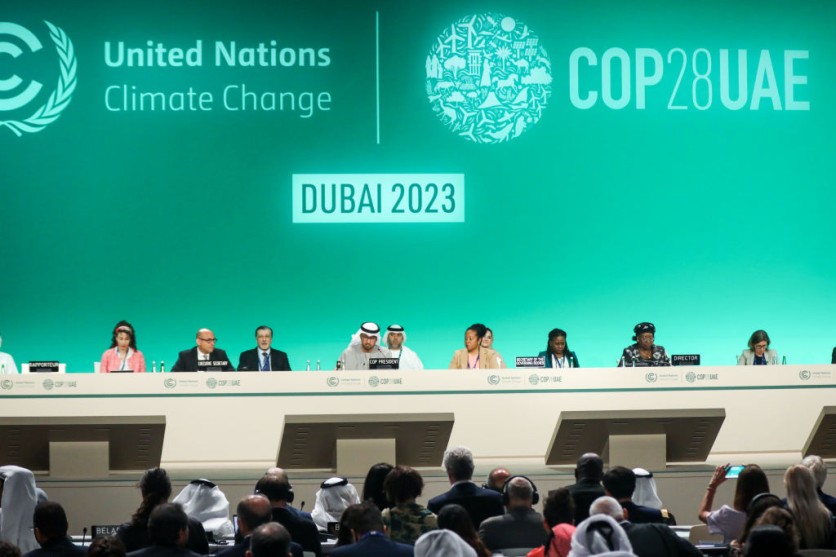The United Nations Climate Summit, COP28, held in Dubai, has successfully concluded with a historic decision that marks a significant global shift away from fossil fuels.
After 13 days of intensive talks involving 194 countries and the European Union, the world has collectively agreed to transition towards renewable energy sources, signaling a paradigm shift in the fight against climate change (via AP News).
The Emirati president of COP28, Sultan Al Jaber, played a pivotal role in achieving consensus, surprising many environmentalists given his position as the head of the United Arab Emirates' national oil company.
Al Jaber commended the participating nations for demonstrating flexibility and prioritizing common interests over self-interest, describing the resulting agreement as a "transformational change."

The Agreed Deal
The deal emphasizes a just, orderly, and equitable transition away from fossil fuels in energy systems, with a renewed commitment to achieving no net greenhouse gas emissions by 2050.
This comes as the global temperature has already risen by 1.2 degrees, making 2023 likely the warmest year in 100,000 years. The escalating frequency of storms, droughts, and lethal wildfires worldwide underscores the urgency to address climate change.
Protest from Island Nations
However, representatives of at-risk island nations have criticized the agreement. The Marshall Islands' negotiator, John Silk, compared the final agreement to a "canoe with a weak and leaky hull." While the small islands did not block the deal, concerns remain about the language being too weak to ensure their survival in the face of rising sea levels.
Despite these challenges, US climate envoy John Kerry hailed the agreement as an explicit endorsement of the 1.5-degree goal, emphasizing the crucial role played by oil and gas-producing countries in supporting the deal.
Kerry highlighted moments in the last 48 hours when the conference's success seemed uncertain, acknowledging the efforts to secure the cooperation of nations like Saudi Arabia.
Loopholes Revealed
While considered a step forward by environmentalists, the agreement faces scrutiny for its limitations. The text stops short of endorsing a "phase-out" of oil, gas, and coal, contributing to approximately three-quarters of global emissions.
Critics argue that the agreement contains "cavernous loopholes," such as recognizing a role for "transitional fuels," which is seen as code for natural gas.
The COP28 conference, occurring at the end of a record-breaking year in terms of global heat, witnessed deep divisions, with Saudi Arabia and oil-producing nations resisting stronger language on fossil fuel phase-out.
The negotiations were also marred by allegations of oil interests influencing the talks, raising concerns about the geopolitical tensions impacting global cooperation on climate issues.
In a joint call, the US and China, the world's two largest emitters, urged increased focus on renewable energy. The conference also established a loss and damage fund to compensate countries severely affected by climate change. However, the text failed to address the elephant in the room explicitly: a complete phase-out of fossil fuels.
Stay posted here at Tech Times.
Related Article : Scientists Rush to Establish Consensus on Global Warming Thresholds Ahead of COP28

ⓒ 2026 TECHTIMES.com All rights reserved. Do not reproduce without permission.




